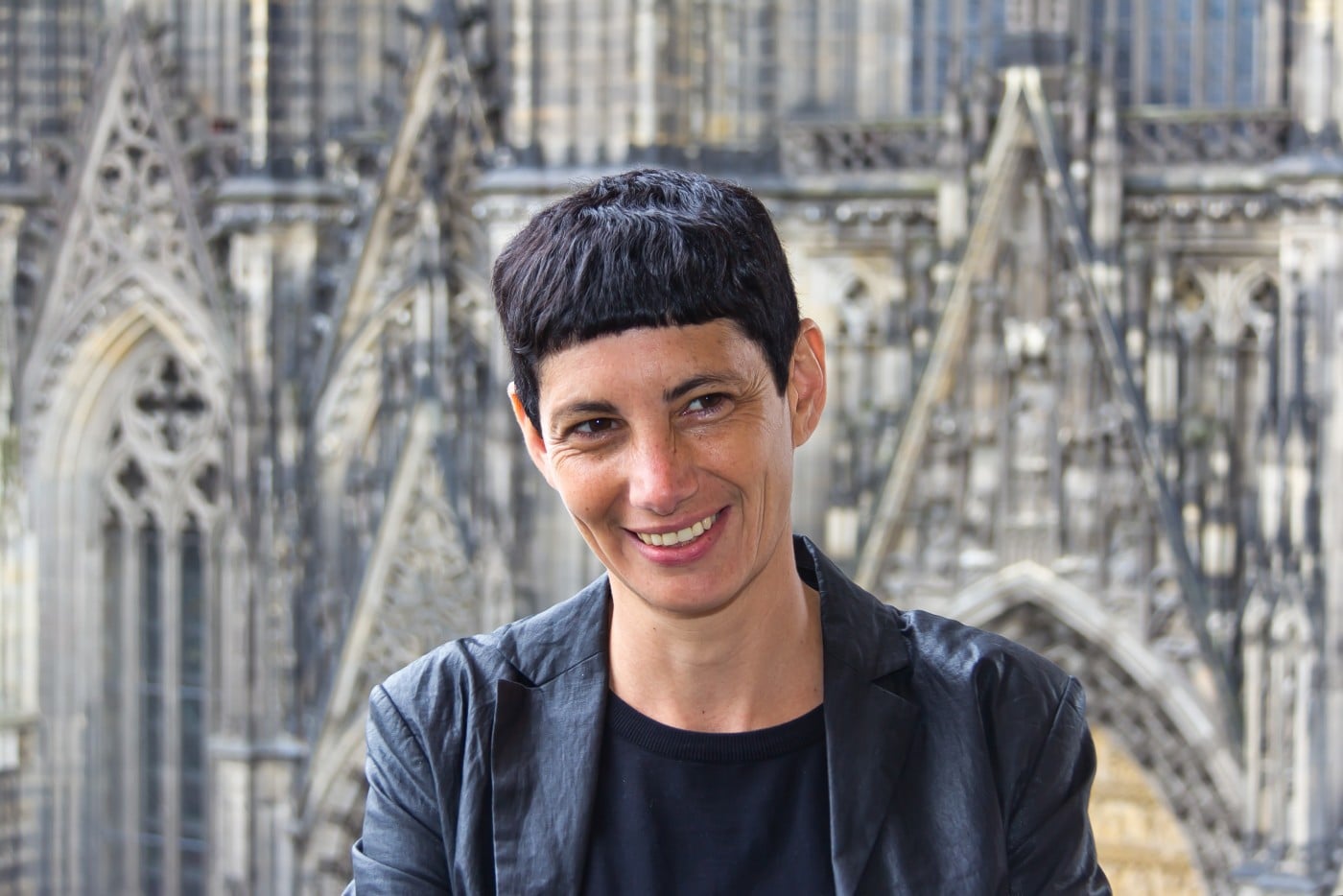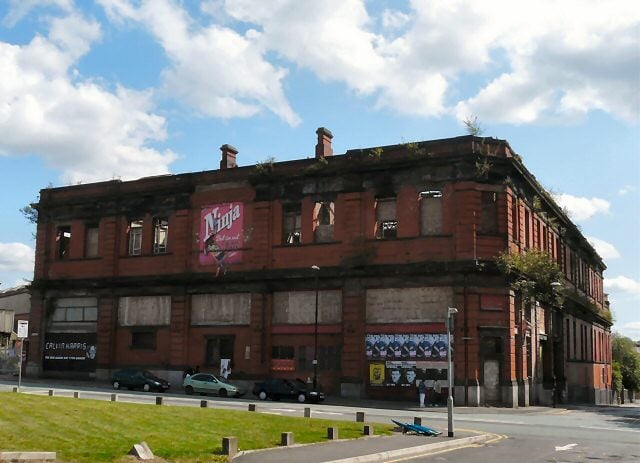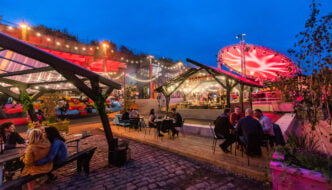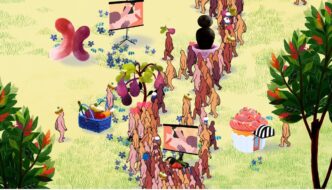
Premised on the question ‘what if women ruled the world?’, Yael Bartana’s ‘theatrical conference’ is an urgent and compelling work. The Isreali born film and installation artist’s collaboration with the Royal Court’s Vicky Featherstone and Abi Morgan, writer of Suffragette, is transgressive, visually overwhelming and beautifully acted.
Performed as part of Manchester International Festival, the run lasted from July 5th – 8th. An international mix of female experts joined actors in a mock-up situation room, set in an all-too-believable future where an ambiguous disaster has decimated life on earth. The population now stands at ten women to every man. Accepting this premise, the experts must develop new rules for this new world and avoid the mistakes of the past.

The format was complex but deftly navigated by powerful set-design. Actors and experts intermingled around a circular table, while documentary-like interludes played on screens that loomed over their heads. These film pieces reminded the audience that the threat of global catastrophe is hardly confined to the theatre. The Doomsday clock, set each year by a committee of scientists, stands at ‘two minutes’ to annihilation, or ‘midnight’. Climate change denial and the rise of nationalism has pushed us closer to ‘midnight’ than at any time since 1953. Bartana used the Doomsday clock as a theatrical device, pushing her audience through the forth wall and up against harsh reality.
Mayfield, an old train depot with cavernous interior, cobwebs and intense darkness, was an ideal setting. The space allowed for heavy, booming music and attendant strobe-like lighting, as well as tender moments of delicate singing and restrained, emotionally acted passages. The allusions to Doctor Strangelove were immediate, and the presence of a Trump-like character expected – a cheeky ‘covfefe’ joke, however, provided one of many comedic moments.

Bartana, who will turn this piece into a film, clearly had an agenda in writing this piece. It is testament to her artistic bravery that the content of the discussions was handed over to the experts. From Virologists to climate experts to writers, the women on stage stuck to the premise, accepting the hypothetical situation and only occasionally admitting it’s unreality. It provided, no doubt, a welcome respite from stuffy conferences and male-dominated academic panels.
Bartana was not afraid to be provocative, however. A ‘tea boy’ was the only male on-stage presence (in fact, even the cameras were female-operated), and he was dressed in nothing but very brief briefs. An initial snigger gave way to a sense of unease, experts (on the night seen) extending to him the hand of kindness denied servile women for centuries.
This experimental mix of panel-discussion and theatre-piece has plenty to offer the academic and drama worlds alike. Beyond its form, however, the content of the discussions gives ever-needed space to women’s voices and benefits from the wide range of expertise. Question Time this is not – speakers politely wait for one another to finish, disagree lightly and warmly, and one-upmanship is notable in its absence.
From warmongering bravado to intense personal grief, the dexterity of acting was formidable. The script recognised that among over-whelming horror, the death of a pet can take on epic proportions, and that often grief can give way to hysterical laugher. These moments were brought off movingly.
The entire artistic team behind What if Women Ruled the World have created something important. Their ingenuity allowed the invited experts to engage their creativity and flex their intellect. What if Women Ruled the World was a highpoint in an excellent MIF programme, and one luckily recorded by the BBC.
Filed under: Politics, Theatre & Dance, Written & Spoken Word
Tagged with: Manchester International Festival, Mayfield, What if Women Ruled the World, Yael Bartana



Comments